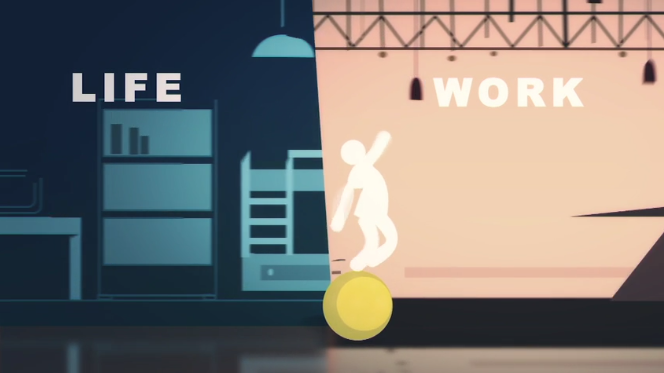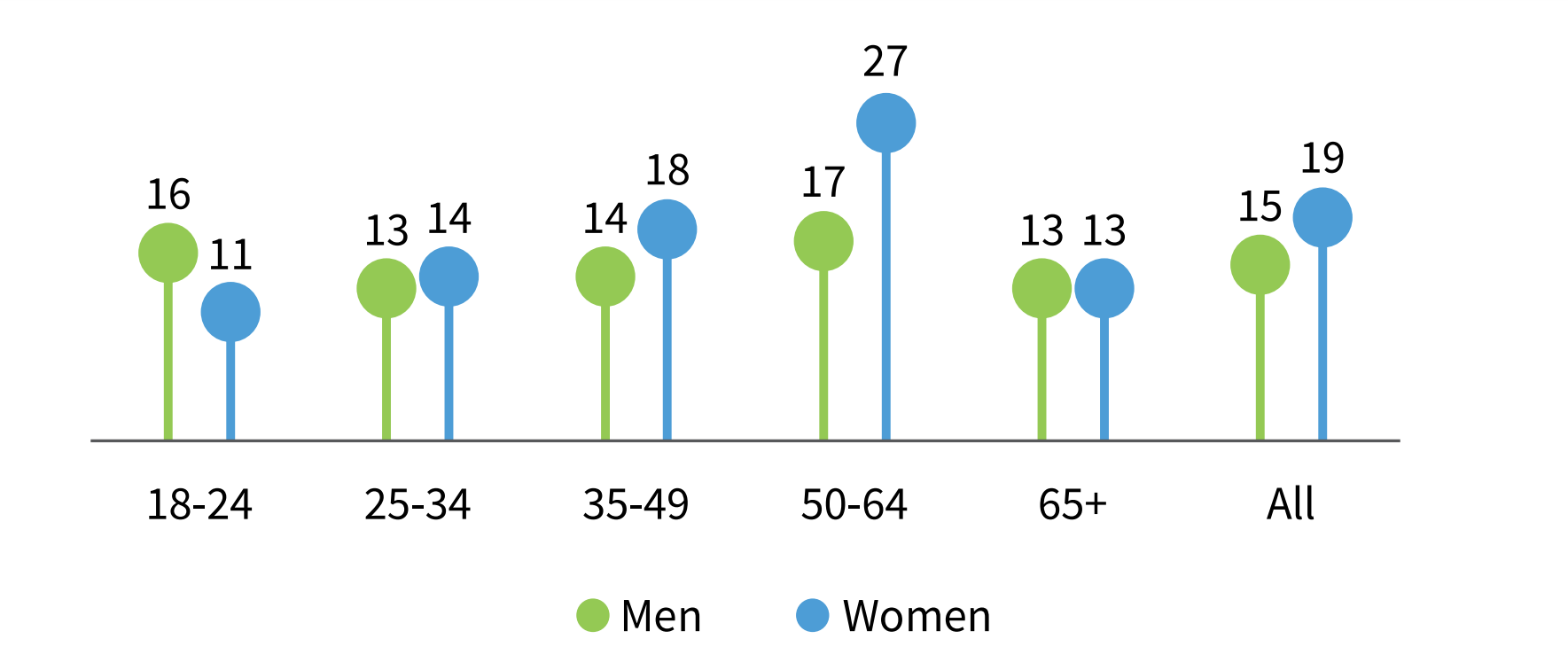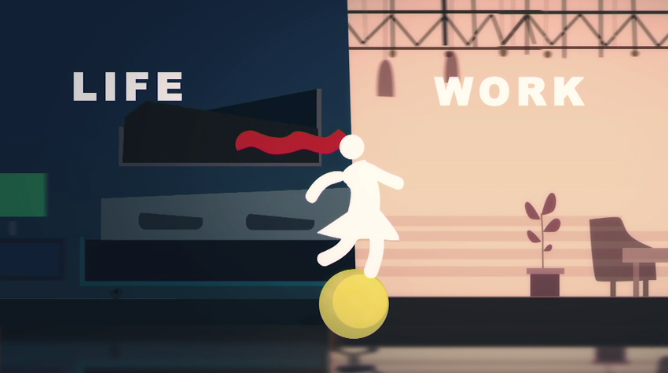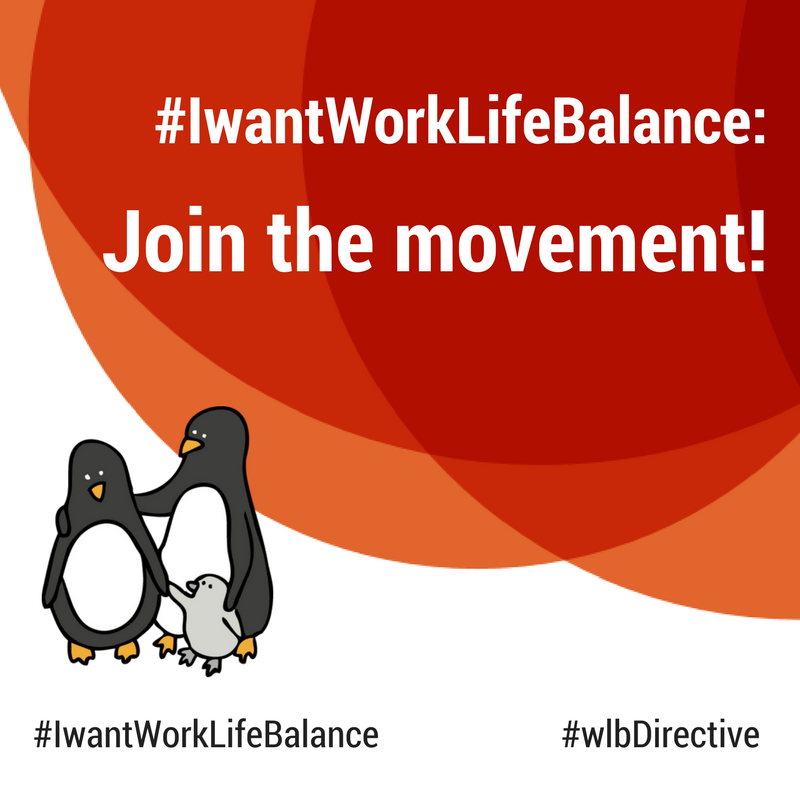On this page, you can read about the Work-Life Balance Directive.
You can find out more about:
What is the Work-Life Balance Directive?
“We need to treat people as people and not only as a workforce”
– Marian Harkin, MEP
The Work-Life Balance Directive is an EU law which aims to make it easier for people working in the EU to balance paid work and private life, including caring responsibilities. It has the potential to improve the situations of family members of people with intellectual disabilities, and people with intellectual disabilities themselves, to better combine their work with their parental and/or caring responsibilities. The Work-Life Balance Directive introduces, amongst other things, minimum standards for parental leave including paternity leave, carer’s leave, the right to flexible working arrangements for parents and carers, and safeguards against unfair dismissals. The directive was formally adopted by the European Parliament and by the Council of the European Union in June 2019. In July, it was published in the EU’s official journal in all EU languages. The members states have 3 years to transpose the Directive in their national law.

Who will benefit from the directive?
Little official data is available on the number of carers, especially of carers of people with disabilities. Eurocarers reports that in Europe it is mostly informal carers, such as family members, who look after their relatives or other persons close to them. The latest European Quality of Life Survey showed that 15% of working men and 19% of working women are caring for a relative or friend with a disability or impairment. These are high numbers, which means that a lot of people with caring responsibilities in the EU would benefit from the directive.

Percentage of the working population caring for relatives or friends with a disability or an impairment, by age. Source: European Quality of Life Survey
The survey highlighted existing inequalities in caring responsibilities and access to work between men and women. A higher percentage of women than men care for a person with a disability or impairment (15% of women compared to 9% of men). Amongst those with caring responsibilities, 73% of men, but only 58% of women also go to work.
The possibility to request flexible working arrangements and carer’s leave, therefore, would help foster the participation of both men and women with caring responsibilities in the labour market and allow for a better share of caring responsibilities between men and women.
How will the directive improve the situation of people with intellectual disabilities and their families?

The directive will help employees with caring responsibilities to better combine these with their work. It will do so in two ways:
The directive will help employees with caring responsibilities to better combine these with their work. It will do so in two ways:
- By creating minimum standards for carer’s leave
- By providing flexible working arrangements for carers and parents
Carer’s leave
A 5-day annual carers’ leave will be granted to children, parents or spouses/partners of people in need of care or support.
The European Union currently has no minimum standards for carer’s leave.
Flexible working arrangements
All working parents of children up to 8 years old, as well as workers with relatives in need of care or support will have the right to request the following working arrangements:
- Reduced working hours
- Flexible working hours
- Flexibility on the place of work
Currently, European Union law recognises the right of all workers to request part-time work. European Union law also allows parents returning form parental leave to apply for reduced and flexible working hours.
Inclusion Europe’s position:
Carer’s leave
It is difficult for family carers to find work that allows them to meet their caring obligations. Family carers are often in unstable employment, or not employed at all. This can lead to financial precarity, which puts further strain on the family.
We want family carers to be able to find a job and stay in it more easily. A more inclusive and flexible labour market is the cornerstone to make this happen.
Member states are encouraged to look which adaptations of carers’ leave (access and detailed arrangements) must be implemented to meet the needs of parents with a disability or parents of children with a disability (Recital n°37).
Inclusion Europe therefore welcomes the provision of carer’s leave as foreseen in the directive and calls on members states to look at adaptations of carer’s leave necessary for parents with a disability or parents of children with a disability.
Carers should not only be entitled to take leave, but also receive adequate compensation. Caring for family members must not lead to financial insecurity.
No payment is foreseen for carer’s leave in the directive. However, the directive’s recital recommends and encourages the provisions of adequate allowance or payment to ensure the effective take-up of this leave (Recitals n°29 and 32).
Inclusion Europe calls on the member states to provide adequate compensation to ensure the take-up of the leave.
Inclusion Europe recognises the diversity of carers and therefore calls on member states to make the right available to other relatives who are carers, as encouraged by the directive (Recital n°27).
Flexible working arrangements
The directive will introduce the right for carers to request flexible working arrangements (flexible hours and location) and the right to request to return to the original working pattern afterwards.
We welcome this as an important improvement compared to the current situation in many European countries.
The directive also foresees that family carers and parents with disabilities are protected against unfair dismissal for requesting either flexible working arrangements or carer’s leave. Following a period of absence, they would also get the right to return to their previous or an equivalent position. Measures must however be taken also to prohibit discrimination and less favourable treatment of workers who have applied for or taken leave, or employees who have asked for or are having flexible working arrangements.
Member states are encouraged to look which adaptations of flexible working arrangements (access and detailed arrangements) must be implemented to meet the needs of parents with a disability or parents of children with a disability (Recital n°37).
We think the directives’s provisions are important in the sense that they will protect family carers and parents with disabilities, and make sure that they will actually be able to take advantage of these opportunities.
Inclusion Europe calls on members states to look at adaptations of flexible working arrangements necessary for parents with a disability or parents of children with a disability.
Equality between men and women
The possibility for both men and women to take carer’s leave and request flexible working arrangements will create opportunities for parents to share caring responsibilities more equally. We think this is a step in the right direction for more gender equality.
We welcome these important provisions that will ensure equal opportunities for family carers and parents with disabilities and ensure they are able to take advantage of all the rights established by the directive.
We call on members states to look at adaptations of both parental and paternity leave necessary for parents with a disability or parents of children with a disability.
What was the adoption process of the Work-Life Balance Directive?
The European Parliament and the Council of the European Union agreed on a new text for the directive. This new text was adopted by the European Parliament in April 2019. The Council of the European Union adopted the text on 13 June. On 20 June, the European Parliament and the Council co-signed the directive, and on 12 July, it was published in the Official Journal of the EU.
The directive entered into force 21 days after its official publication. Members states will now need to implement the directive within 3 years, except for the last two weeks of parental leave granted, which must be implemented within 5 years.
These were the steps of the legislative process:
The European Commission made a proposal for a Work-Life Balance Directive in April 2017. The European Parliament and the Council of the European Union (comprised of the ministers of all EU member states) had the task to review the proposal, and to agree on a common final text for the directive to be adopted and to become law.
To facilitate the adoption of the law, each of the two institutions adopted a position on the text. The positions present changes, or amendments, to the European Commission’s proposal. While the Council of the European Union adopted its position on 21 June 2018, the European Parliament followed on 11 July 2018.
In September, they entered into interinstitutional – also called trilogue – negotiations, with the European Commission as facilitator/mediator. These negotiations help the institutions find a compromise so that both agree on a common final text. There is always a possibility that no common agreement is reached and that the proposal is abandoned and never becomes law, as it happened with the proposed Maternity Leave Directive in 2015. In the case of the Work-Life balance directive, however, the two institutions reached common ground.
All steps of the legislative process towards the adoption of the Work-Life Balance Directive can be followed on the website of the Legislative Observatory.
What other measures will be taken by the European Union to support a better work life balance?
In her message for Inclusion Europe’s 30th anniversary, Commissioner Marianne Thyssen spoke about the European Pillar of Social Rights
Improving the work-life balance of employees with caring responsibilities is one of the 20 principles of the European Pillar of Social Rights. The Work-Life Balance Directive is one of the EU’s tools to achieve this. Other actions will be taken in parallel by the European Union to support member states in providing a better work-life balance, for example:
- ensuring protection against discrimination and dismissal for parents (including pregnant women and workers coming back from a leave) and carers;
- encouraging a gender-balanced use of family-related leaves and flexible working arrangements;
- making better use of European funds to improve long-term and childcare services;
- removing economic disincentives for second earners which prevent women from accessing the labour market or working full-time.
How does Inclusion Europe support the Work-Life Balance Directive?
Inclusion Europe joined COFACE Families Europe in their campaign called #IwantWorkLifeBalance, which urged decision-makers to support a strong Work-Life-Balance Directive.
In the context of this campaign, several actions were taken. An Open Letter to the Council of the European Union was sent prior to the Council’s meeting on 21 June to demand it adopts a position on the proposal for the directive. This was accompanied by a campaign on social media using the hashtag #IwantWorkLifeBalance.
Now that the directive has been adopted, another Open Letter was released to ask for a strong transposition and implementation of the Directive.
We will also soon publish a policy briefing on the directive.

What can I do to support a strong Work-Life Balance Directive?
Now that the directive was adopted by the Council of the European Union and published in the Official Journal of the European Union, member states must adapt their national legislation based upon the directive within 3 years, except for the last two weeks of parental leave, within 5 years.
You can ask your national government to be ambitious while doing this, by following the non-mandatory recommendations in the Directive (for example ensuring payment for carers’ leave) or by going beyond the requirements and recommendations established by the directive.
Reach out to our national member in your country and ask them how you can help their lobbying activities.
Ask your national MEPs, MPs and ministers to strengthen the Work-Life Balance Directive when translating it to national law. Tell them why the directive is important for many families and remind them of the things that are essential for carers. In this way, you can help making sure that the directive will be a strong basis for work-life balance in your country.
Inform us about the national law in your country and how the state is implementing it. This way we can continue to work at the European level to support a strong Work-Life Balance Directive.
Where can I find more information?
- Read the directive in your language.
- Have a look at the resources from the European Commission.
- Read the EU Parliamentary Research Service’s briefing and listen to its podcast to find out more about the directive.
- Visit the page of COFACE Families Europe on their campaign for a strong Work-Life Balance Directive. Read their full assessment of the directive.
- “Employment” will be our focus in 2021. Find out more about our strategy for the coming years:





